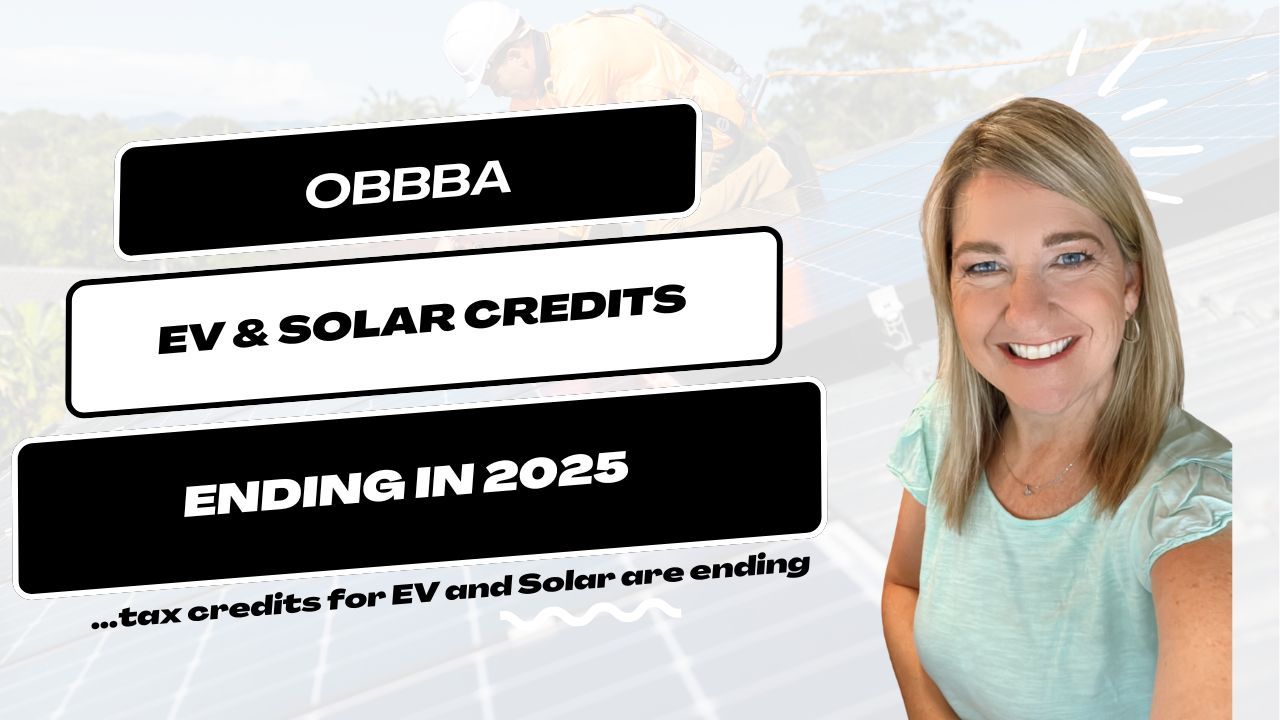Solar and EV Tax Credits Are Ending with OBBBA: What You Must Do Before 2025 Ends
Jul 21, 2025
OBBBA Kills Key Energy Tax Credits: Claim Your Solar and EV Incentives Now
If you’ve been thinking about going solar or purchasing an electric vehicle (EV), the window for big federal tax savings is closing fast.
The One Big, Beautiful Bill Act (OBBBA) signed into law in July 2025 eliminates or reduces many of the clean energy tax credits enacted by the Inflation Reduction Act. That means 2025 may be your last year to take full advantage of these incentives.
Here’s what’s changing—and what you should do before year-end to lock in your savings.
What Energy Credits Are Expiring or Shrinking?
According to the OBBBA, several key credits will phase out by the end of 2025 or become significantly more restrictive:
🔋 Residential Clean Energy Credit (Solar)
-
Ends after December 31, 2025
-
Covers solar, battery storage, geothermal, wind, and more
-
Currently allows a 30% credit on qualified installation costs
→ This credit is completely repealed for expenditures made after 2025
🚗 EV Tax Credits
-
Clean Vehicle Credit (§30D) for new EVs ends after Sept. 30, 2025
-
Used EV Credit (§25E) is also repealed after that date
-
Commercial EV Credit (§45W) is repealed on the same timeline
🏡 Home Energy Efficiency Upgrades
-
The Energy Efficient Home Improvement Credit (§25C) ends Dec. 31, 2025
-
This includes credits for insulation, energy-efficient windows, doors, and HVAC upgrades
What Does This Mean for You?
These changes represent a significant loss of potential tax savings, especially if you’ve been putting off these upgrades or purchases.
Who Should Act Now:
-
Homeowners considering solar or battery installation
-
Buyers shopping for a qualifying EV
-
Contractors or landlords planning energy-efficient improvements
-
High-income taxpayers planning large deductions before phaseouts hit
Risks of Waiting:
-
Lose out on thousands in federal tax credits
-
Miss installer or dealer availability as demand spikes
-
Be subject to stricter eligibility or no benefit at all in 2026
Pro Tip: Double-Check Eligibility with a Tax Advisor
Some credits also come with income limits, assembly rules, and domestic content requirements that could disqualify certain purchases—even before they expire. For example:
-
Final assembly for EVs must occur in the U.S.
-
Certain solar and EV models may no longer qualify depending on manufacturer sourcing rules
What to Do Before Year-End
- Schedule your solar or battery consultation
- Shop for EVs now—dealers may face inventory or credit availability issues
- Review your AGI and eligibility for credit thresholds
- Work with your tax advisor to ensure:
- You qualify for current-year credits
- Your purchase/install dates fall within eligible timelines
- You don’t overpay or under-claim
Final Thought: Use 2025 to Maximize Clean Energy Savings
The landscape is shifting. If you're considering an energy-efficient investment, 2025 is likely your last, best chance to get rewarded for it on your taxes.
Don’t wait until it’s too late. These tax credits turn into a pumpkin at midnight.
Find more highlights from the OBBBA at Major Tax Changes from the OBBBA: What You Need to Know for 2025




